LITHUANIAN NATIONAL OLYMPIC COMMITTEE
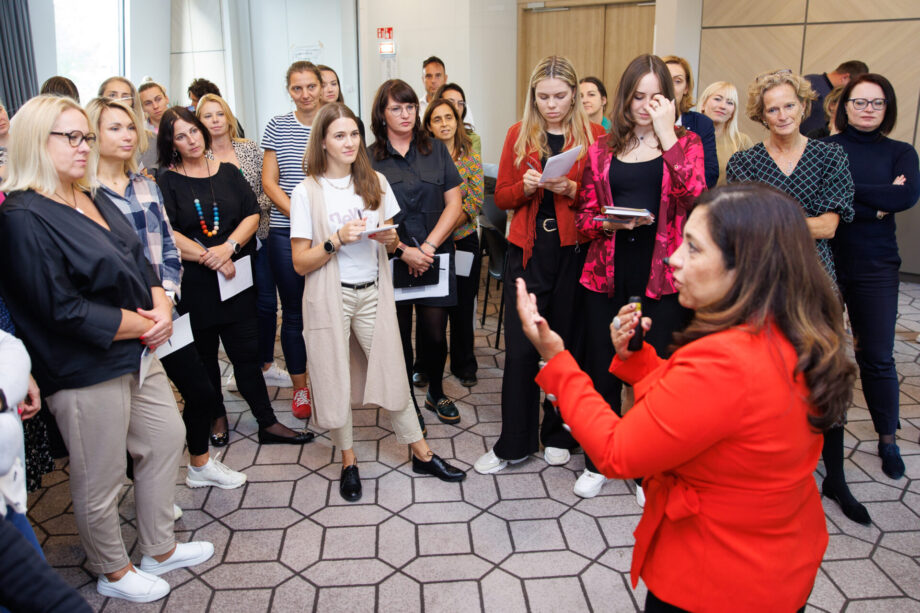
The international women’s leadership project New Miracle ended on a high note in Vilnius (Lithuania). 37 female sports managers from 4 countries attended the final training session, which took place for two days in the capital of Lithuania, where Annamarie Phelps, Vice Chair of the British Olympic Association, and Daina Gudzinevičiūtė, President of the National Olympic Committee of Lithuania (LNOC), Olympic champion, and member of the International Olympic Committee (IOC), shared their experience with the participants. Gabriela Muller, a renowned coach, conducted the training.
The 2.5-year New Miracle project was dedicated to promoting women’s leadership in sport, developing skills necessary for working in sports organisations, and building useful contacts.
“When I was elected President of the LNOC in 2012, I was only the second female President in Europe. Currently we have 6 female leaders of National Olympic Committees on the continent. The number has grown, but it is still not enough. That is why I want to encourage, inspire and support women to aspire to be head coaches, secretaries-general, directors and presidents.
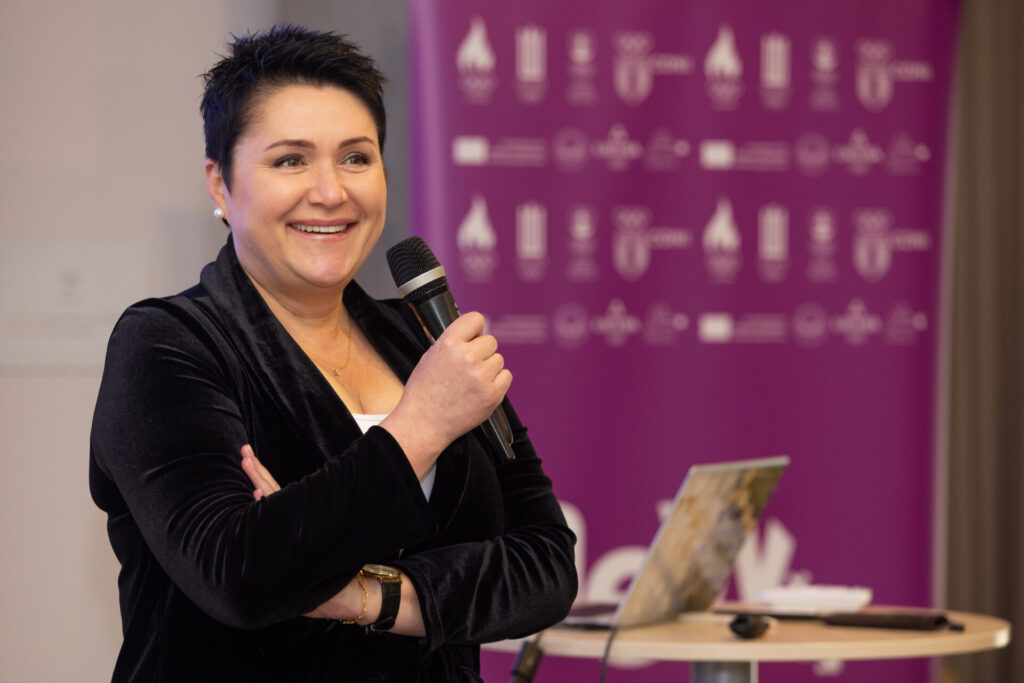
Daina Gudzinevičiūtė (E. Žaldario nuotr.).
This project has not only provided the participants with knowledge, but also the opportunity to meet like-minded people, share their stories and support each other. I am glad that such an initiative was born in Lithuania,” said LNOC President Ms Gudzinevičiūtė.
In preparation for the project, a free training programme and an exclusive mentoring platform for female sports managers were developed, where the participants had the opportunity to get advice from experienced colleagues and improve their collaboration skills.
The Italian, Latvian, Estonian and Slovak National Olympic Committees joined the LNOC initiated project.
Making aware of the international situation
A total of 100 female managers from 5 countries participated in the project. The initiative consisted of 4 national and 3 international sessions, during which the participants learned about project and change management, internal and external communication, branding, good governance, and leadership.
Annamarie Phelps, Chair of the EOC Gender Equality, Diversity and Inclusion Commission and Vice Chair of the British Olympic Association, also attended the final international training session in Vilnius.
In addition to her active participation in task solving, she also presented the IOC’s objectives and the steps it is taking towards gender equality. She pointed out that the current situation in sports organisations has been improving around the globe, but has not yet reached the targets. For example, the number of women on the Executive Committees of the European Olympic Committees is 27 per cent, compared to the IOC’s target of 30 per cent.
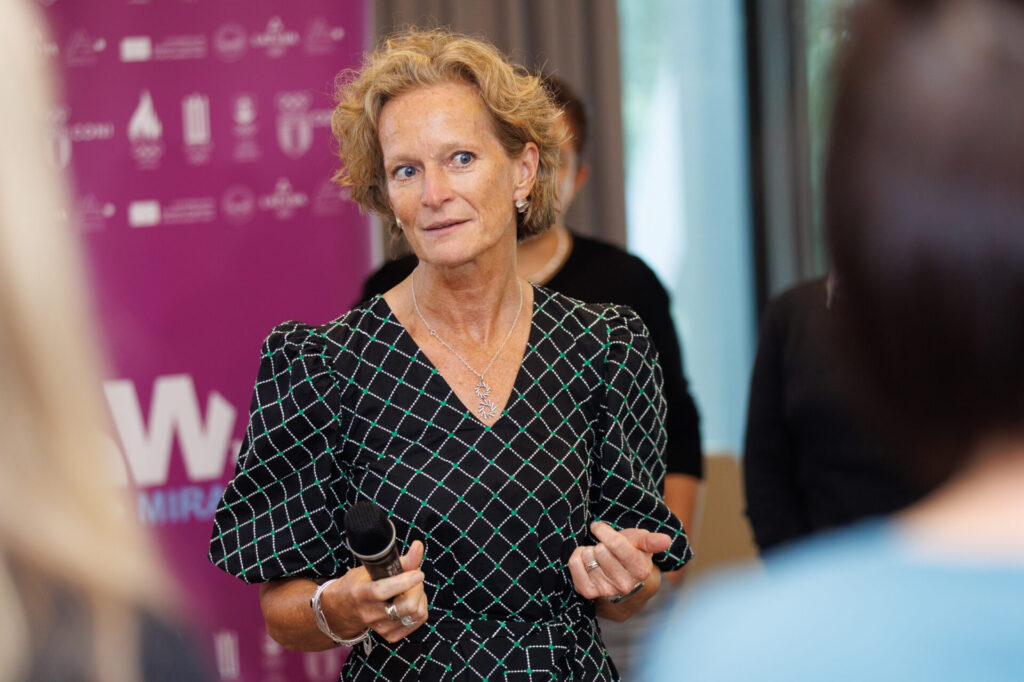
Annamarie Phelps (E. Žaldario nuotr.).
“This project is an amazing opportunity for female participants to not only get to know themselves better, but also to gain inspiration, self-confidence and the skills to run for local and senior positions in sports federations. If we want Olympic sport to grow, we need female professionals.
With 50 per cent of the participants at the Paris Olympics being women, we need strong women in sports organisations to represent them well and to make the best decisions. In addition, it is known that organizations with a balance of male and female decision-makers perform better and are more successful,” commented Ms Phelps.
Training by a renowned coach
37 female managers from 4 countries took part in a two-day leadership training conducted by renowned coach Gabriela Muller. She works with organisations such as the IOC, FIFA, UEFA and others.
On the first day of the training, the participants worked on teamwork, communication, personal branding and personal development through a series of practical tasks.
The second day explored the potential of artificial intelligence in sport and communication. Ms Muller talked about platforms that could help in everyday work. The second part of the training focused on social networks and their importance in building a personal brand.
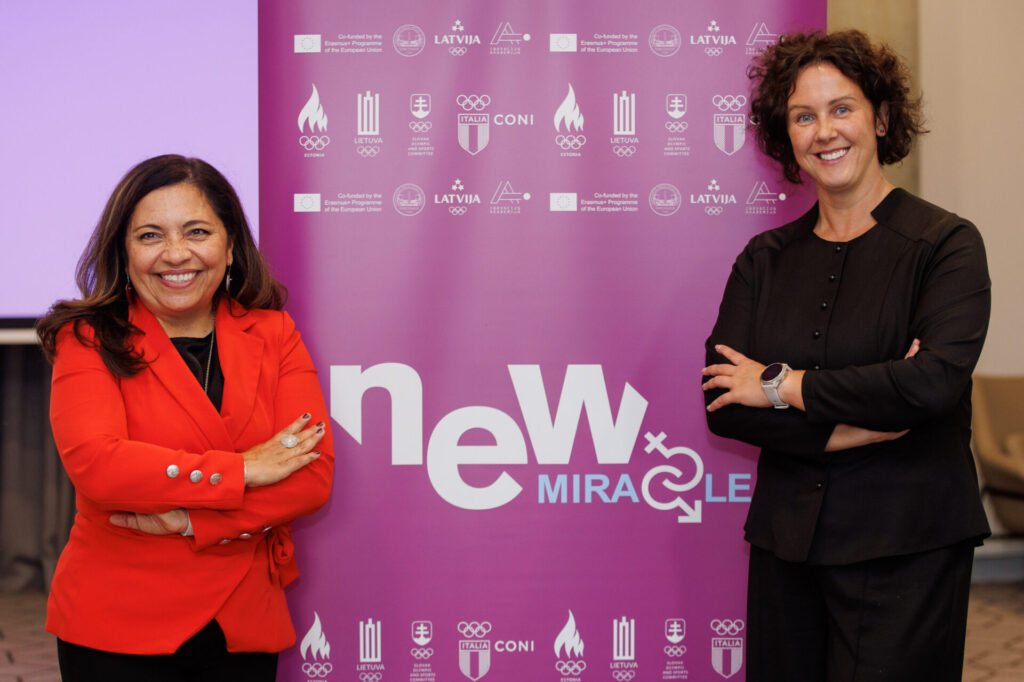
Gabriela Muller ir Agnė Vanagienė (E. Žaldario nuotr.).
The lead coach shared practical tips on how to present yourself in order to establish useful contacts and how to bring out your strengths.
“As a coach for this training, I wanted the participants to learn three things. To be prepared to become the leaders of the future, because the world is changing very fast and we need to keep up. I want them to step out of their comfort zone and realise that learning and growth only happen outside it. I also want them to find the content not only interesting but also inspiring,” said Ms Muller.
Happy with the results
The project, which lasted for more than two years, was led by Agnė Vanagienė, Deputy Director of Olympic Sport of the LNOC and one of the leaders of the Lithuanian Olympic Missions. She developed the training programme together with national coordinators from each participating country.
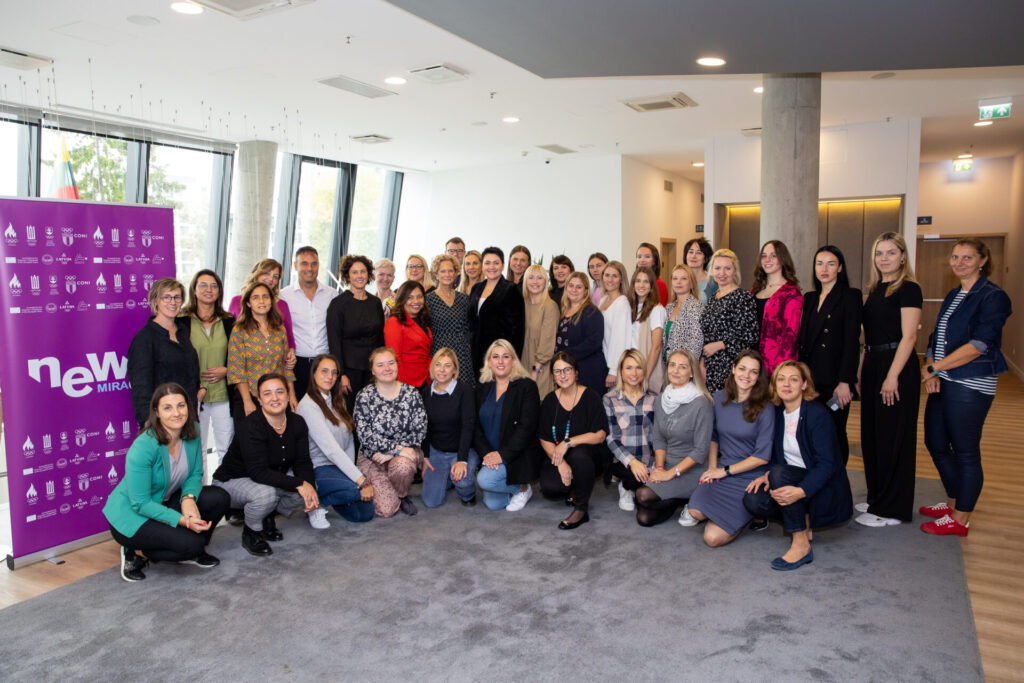
Mokymų dalyvės (E. Žaldario nuotr.).
“This journey was not easy, but the outcomes are worth it. I am happy to see how much the participants have grown during the training, how their thinking has changed, and what skills they have learnt they are already using in practice.
Management training for the sports community is one of the strategic directions of the LNOC. The lack of women in high positions in sports organisations is a problem not only in Lithuania but all over the world. I hope that the participants of the project have been inspired and equipped with the skills to achieve high career goals and take on leadership roles. We have provided the tools, and it is up to the participants themselves to use them,” commented Ms Vanagienė.
“For me, the most important thing I take away is that I have realised that I am worthy of the position I am in and I don’t have to prove it to anyone. Not only do I feel improved, but this project has given me an opportunity to get to know a lot of women in Slovak sport, with whom we will be able to collaborate on future projects,” said Slovak Petra Licharova, representing the Slovak Sailing Federation.
Indrė Bubelytė, Chief Specialist of the Sports Division at Šiauliai Municipality, had similar impressions.
“During the project, we learned a lot together with wonderful women from different fields and countries. For example, to identify the type of leadership, to communicate effectively, to accept proposals, to cooperate. We mastered the ‘art’ of change, understanding why people resist change and how to implement it faster.
Personal branding, tips for communicating on social networks, improving communication skills, self-presentation – we have gained so much knowledge that we have already started to apply and will definitely continue to apply in our work and personal life. I am grateful for the opportunity to get to know these women, to share our experiences and to feel a sense of community,” said Ms Bubelytė.
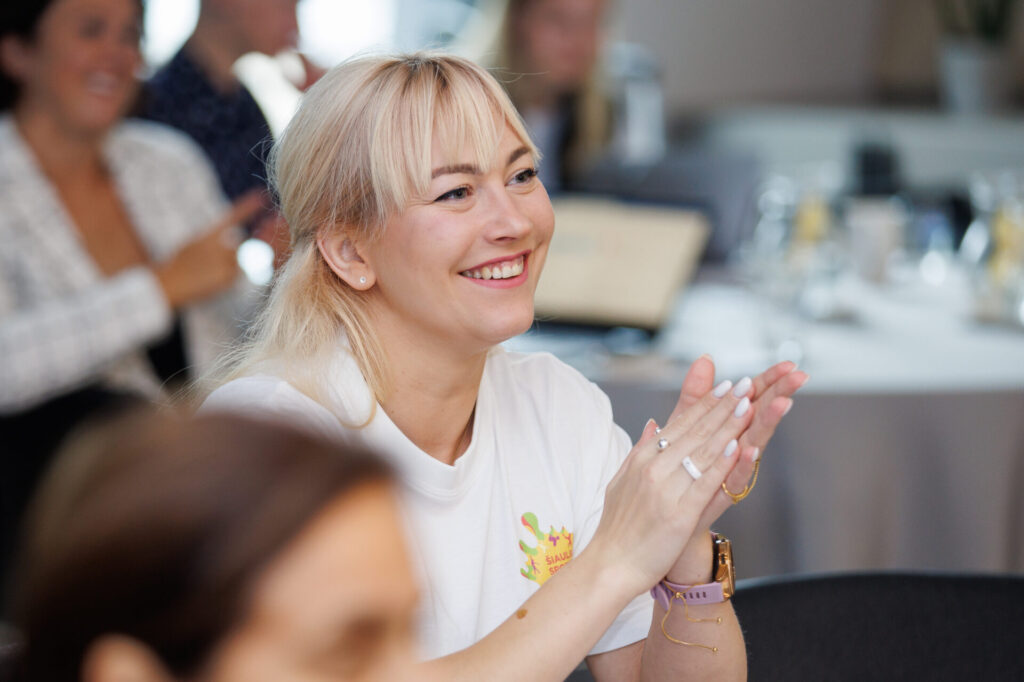
Indrė Bubelytė (E. Žaldario nuotr.).
“I feel inspired. I’m trying to find my way while doing what I love, which is creating content, and I’m striving to become a young leader in sport. I want to talk about sport, challenges and gender equality outside the world of sport, with the rest of society,” said Lasma Locmele, social media manager of the National Olympic Committee of Latvia.
“If we don’t take the lead, nobody will do it for us. I feel that I have improved my soft skills and expanded my circle of contacts, which I have no doubt will help me in my career goals. It has been very interesting and useful,” said Serena Raganato, who is studying Sports Management at the University of Rome in Italy.
The project is one of 315 projects that have won European Union funding for implementation in 2021. A total of 1107 applications were submitted.
